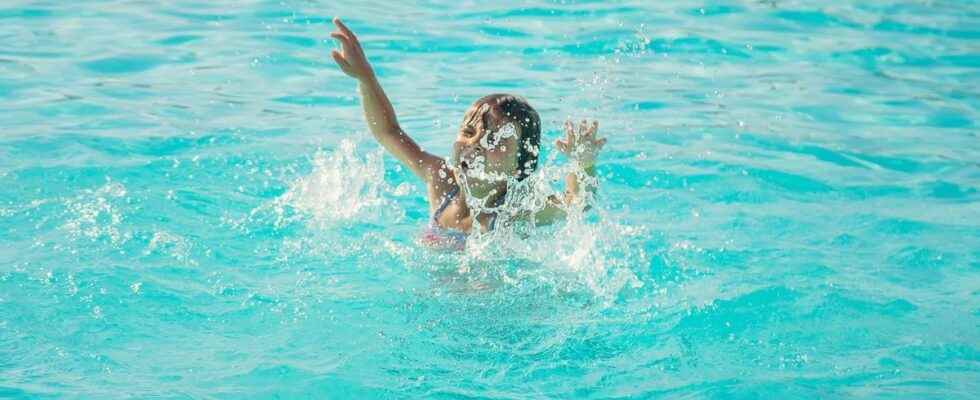Published on
Updated
Reading 2 mins.
In the middle of a heat wave, you can’t resist the urge to take a dip? Please note that last summer, there were nearly 1,500 accidental drownings and 400 deaths. Some cautionary advice is in order.
Drowning also remains the leading cause of death for people under 25. In this scorching period, let’s take stock of the safety conditions to be respected before going for a swim.
Take your time getting into the water
“Heat peaks triple the risk of drowning. recalls Public Health France. And the thermal shocks are not there for nothing. Indeed, when too great a difference in temperature separates that of the body and the water, dizziness followed by discomfort is possible… and therefore the risk of drowning.
So take the time to gradually get into the water, while wetting your body and neck to get used to the water temperature.
Watch out for minor symptoms
If when you bathe, you feel small symptoms in your body such as cramps, chills, headache, itching, that you experience visual disturbances or even intense fatigue, do not take any risks and go out. some water.
If all these symptoms do not pass quickly once out, call the emergency services.
Good reflexes to have
To limit the risk of drowning as much as possible, simple actions can be taken by everyone.
For kids :
- Go play with them in the water and if you can’t, designate a single person dedicated to monitoring them, so as not to leave room for doubt;
- Equip them with equipment adapted to their age, weight and size (buoys, armbands, belt, etc.)
- If you have a swimming pool at home, secure the surroundings with a fence or have a cover and an alarm installed.
- Remove all toys from the water to prevent them from having the urge to retrieve them.
For everyone :
- Swim preferably in areas supervised by lifeguards;
- Avoid overly rich meals and alcohol before going for a swim.
“Dry” drowning
Although according to Public Health France, it is a concept that “has no scientific or medical basis“, “dry” drowning always worries parents, who often seek help after their child has “drank the cup”. It would be for fear of drowning by this swallowed water which would end up flooding the lungs for several hours or several days after the event. Although it is never pleasant to swallow water, whether from a swimming pool or the sea, it is in the majority of cases not serious, all the more so if the child has had the reflex to cough to spit out part of the liquid. If this happens, you can take your child out of the water and let him rest, having him drink small sips of water regularly. Then watch him. If you notice that he is abnormally tired, that he is vomiting and has a grayish complexion, take him to the emergency room without delay.
